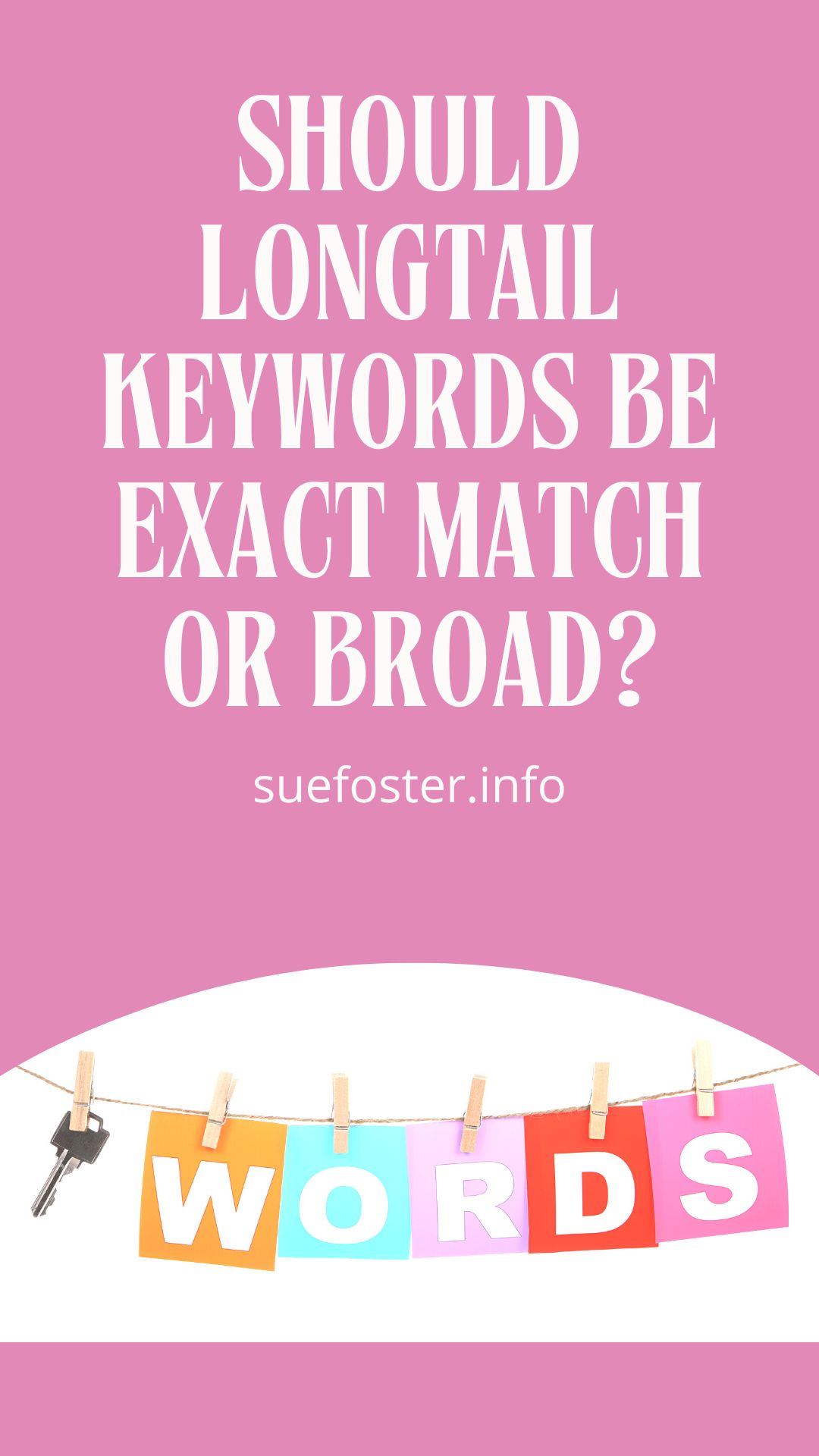There is much debate on whether longtail keywords should be treated as an exact match or a broad match for longtail keywords.
A broad match will allow more keywords to be included in an ad campaign, resulting in a higher click-through rate (CTR) and better search engine ranking.
On the other hand, an exact match will only include keywords mentioned explicitly in the ad text.
Should longtail keywords be an exact match or broad?

What are longtail keywords?
Longtail keywords are more specific and less common than the more general ones. They tend to have lower search volume, but they also tend to have a higher conversion rate because they’re more precise.
In other words, people looking for information using longtail keywords are more likely to be interested in what you have to offer than those using shorter, more general keywords.
There are a few ways to find longtail keywords relevant to your business. One is to use keyword research tools like Google AdWords Keyword Planner, Keysearch or semrush.com to find related terms and phrases.
You can also use competitor analysis tools like spyfu.com or semrush.com to see what keywords your competitors are targeting that you may not be aware of.
How do you determine if a keyword is a longtail keyword?
There is no definitive answer to this question, as it depends on the individual’s interpretation. However, one way to determine if a keyword is a longtail is to consider how popular it is.
A longtail keyword will typically have less competition and be less commonly used than a more popular keyword.
Additionally, a longtail keyword will usually be more specific and target a smaller audience than a more general keyword.
What are the benefits of targeting longtail keywords?
The benefits of targeting longtail keywords are as follows:
- Longtail keywords have a lower competition level than head keywords, making it easier to rank higher on search engine results pages.
- Longtail keywords are more specific and relevant to users’ needs, which means they are more likely to result in conversions.
- Longtail keywords generate less traffic than head keywords, but their traffic is more qualified and, therefore, more likely to convert.
- By targeting longtail keywords, businesses can reach a larger audience with less effort.
- Longtail keyword research is easy and affordable, so businesses of all sizes can benefit from its benefits.
Should you target longtail keywords with an exact match or a broad match?
When it comes to search engine optimization (SEO), there are two main types of keyword matching: exact and broad. So which one should you use to target longtail keywords?
Broad Matching
Broad matching is when you use keywords related to your target but are not an exact match. For example, if your target keyword is “running shoes,” a broad match would include keywords like “athletic shoes” and “running apparel.”
Exact Matching
Exact matching is when you use keywords that are an exact match for what you’re targeting. So in the running shoe example, you would use the keyword “running shoes” and nothing else.
Which approach should you use for targeting longtail keywords? The answer depends on a few factors, including how competitive the keyword is and how much traffic you hope to generate from it.
Bottom Line
Longtail keywords should be an exact match to get the most relevant traffic to your website.
However, if no exact match is available, using a broad match will also produce results.
By targeting the right longtail keywords, you can improve your website’s search engine ranking and increase your web traffic.
Try Keysearch here. Here’s a 20% discount code to use on your subscription: KSDISC.



